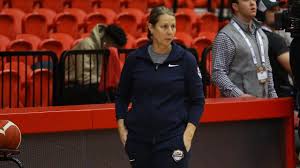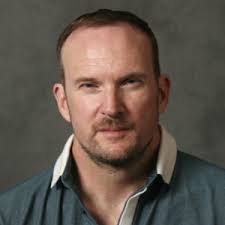The NBA Finals date back to 1947 (when they were known as the Basketball Association of America Finals) and the very 1st NCAA tourney was held in 1939. Olympic basketball competition is even older: it debuted as a demonstration event in 1904 and the men’s version became a medal sport in 1936, with the women finally getting their chance to go for the gold in 1976. The United States has dominated Olympic basketball competition from the start: the men have won 15 gold medals in the 18 tournaments they have participated in during the past 84 years, while the women have won 8 gold medals in the 10 tournaments in which they have competed during the past 44 years. Those of you who were looking forward to the 2020 Olympics opening ceremonies in Tokyo on July 24, 2020 will have to wait an extra 364 days, as the coronavirus caused a postponement until July 23, 2021. Due to the absence of college basketball since mid-March, HoopsHD’s Jon Teitel decided to fill the void by trying to interview as many prior Olympic players/coaches as possible so that you have something to read this summer while not watching the Summer Games. We continue our coverage by chatting with David Berri (sports economist/professor at Southern Utah), Pat Borzi (sportswriter for MinnPost), and Jim Souhan (sports columnist for the Star Tribune) about Cheryl Reeve winning 4 WNBA titles and a gold medal in 2016. Today marks the 10th anniversary of the final game of Cheryl’s 1st season as head coach of the Minnesota Lynx…which was subsequently followed by 7 straight trips to the Western Conference Finals and a quartet of championships.
Cheryl started at PG for 4 years at La Salle and her 420 career AST remains #4 in school history: how good a player was she back in the day? Pat Borzi: I never saw her play in college but you have to be pretty good/smart to start at the point for 4 years. Jim Souhan: I never got to see her play, but from conversations with her and others over the years I believe that she was a good/smart college PG with excellent ball handling skills.
She was also nominated to be a Rhodes Scholar and received an NCAA Post-Graduate Scholarship in 1988: how smart a player was she back in the day? David Berri: She told me once that she studied computer programming so she was a very smart person. JS: I have no doubt that she was a smart player but I would be hesitant to equate academic intelligence with basketball intelligence. The smartest guards in basketball history are not necessarily those who got the best classroom grades.
She is a 2-time WNBA COY: what did it mean to her to receive such outstanding honors? DB: She does not seem to care very much. Coaches tend to focus on their players so you will not find very many who talk about things like that. Professors work very differently! PB: Reeve likes to say that those are really team awards. She credits her players/assistants/staff for buying in and executing the game plan. She was really fortunate: Seimone Augustus was already here, then GM Roger Griffith acquired Lindsay Whalen/Rebekkah Brunson and drafted Maya Moore, which became the nucleus of their 4 championship teams. JS: I am sure that those awards were gratifying but as a leader she is always careful not to celebrate her individual accomplishments: she credits her players/organization. This is both humble/smart: she does not need to call attention to herself to receive accolades and she knows that in her position she needs to demonstrate selflessness.
She was an assistant coach for team USA at the 2016 Olympics: what did it mean to her to represent her country, and what did it mean to her to win a gold medal? DB: I think that it meant a lot to her. PB: As Reeve herself will tell you, representing your country is something special. That gold medal is as meaningful to her as all of her WNBA championship trophies: maybe even more so. JS: I covered her at the 2016 Olympics. I think that she was proud to represent her country and loves working with elite players. I think what made the experience particularly gratifying was the ability to coach 4 of her own Lynx players (Seimone Augustus/Sylvia Fowles/Maya Moore/Lindsay Whalen), as well as winning the gold medal.
She won 2 titles as an assistant coach in Detroit and 4 titles as head coach in Minnesota: what is her secret to winning championships? DB: She would claim that it is the players but if you look at any pro sports league there is nobody from the past decade with a better record than Cheryl. She told me that not a single NBA team has called her for an interview. I do not think that she would accept an NBA assistant job but would at least talk to them about a head coaching job. PB: Her emphasis on defense/rebounding, as well as unselfishness/commitment to the team and a willingness to do whatever has to be done, even at personal sacrifice. JS: She is an excellent strategist who tries to stay ahead of the analytics curve. She surrounds herself with good people, works like crazy, and connects with her key players. However, no basketball coach wins without talent. Her personnel moves have been the key: trading for Lindsay Whalen, getting lucky enough to draft Maya Moore, acquiring Sylvia Fowles, etc. Without great players she would not have won all of those championships.
In the decisive Game 5 of the 2016 WNBA Finals Nneka Ogwumike scored 12 PTS and grabbed an offensive rebound and made the game-winning shot in a 1-PT win by LA: where does that rank among the most devastating losses of her career? DB: Some coaches dwell on their losses but I have never talked to her about that. PB: That was the toughest loss of her career: I am unsure if she has even watched the full video of that game. JS: That would probably be the hardest loss for both her and the franchise. If they had won that game then they would have won 5 titles in 7 years, including 3 in a row!
Where does she rank among the greatest coaches in WNBA history? DB: I think that she is #1. PB: She and Van Chancellor (former Houston coach) are the only coaches with 4 WNBA titles. However, she has the highest regular-season winning percentage and the most playoff wins in league history…so you tell me! JS: I believe that she is the greatest coach in league history. Van Chancellor won 4 straight titles early in league history, but the league is so deep/talented/competitive right now that I would elevate Reeve’s overall record above his.
How much of her success was based on Minnesota drafting Maya Moore 1st overall in 2011? DB: Cheryl would give a lot of credit to Maya but last year they had a winning record without her. My expectation this year is more positive than most other people. The team did not completely collapse when Maya left and Maya could not have won all of those titles by herself. PB: Maya was a big piece of it, and so was convincing Augustus (a relentless scorer) to become a lock-down defender. Augustus’ willingness to accept that role (which she was great at) made all of the winning possible. Had Augustus told Reeve to pound sand then we would not be having this conversation. JS: Without Maya, Reeve would have had to find another star to win titles. Without Maya, the Lynx probably would have been a good/consistent playoff team but they needed Maya or someone like her to win titles…and there are not many players like her.
In 2019 she was named WNBA Executive of the Year: how does she balance being a coach with being a GM? DB: It is hard to separate those 2 things out so that is a tough 1. Coaches are around their team all the time but as a GM you need to be detached so you can trade a player if it is not working out. I imagine it was hard for her to trade Seimone Augustus last year. I remember Coach Cotton Fitzsimmons saying once that he hoped Charles Barkley would not retire on his team because he did not want to hang onto him for too long. Even Bill Belichick got rid of Tom Brady because he felt it would be insane to give a big contract to a guy his age. It is really hard to play as a 40-year old against faster guys who are half your age. PB: Several other WNBA coaches serve in both roles. It is easier than doing so in the NBA because there is not as much player movement once the season starts. JS: I do not think that it has been a difficult adjustment. She always had a large say in personnel decisions and still collaborates with key people in the organization. Her eye for talent and fit has always been a key to the Lynx’s success.
When people look back on her career, how do you think that she should be remembered the most? DB: 4 titles in 7 years is pretty impressive, especially the way that she did it. They were not all in a row so she had a championship-contending team for 8-9 years, which is a long time. It is different than Houston winning 4 titles when the league was not as competitive so what she did the past decade means more. As the league grows it will become different with many more teams. Cheryl put together a team that dominated a league where everyone essentially had an All-Star team. If Milwaukee plays Detroit right now it is not a challenge for the Bucks, but the WNBA only has 12 teams and is the hardest league in America for a player to get into. PB: As a winner. I bet that she will want to be remembered as an advocate for women/social justice as well since that is a big part of who she is. JS: As someone who does a podcast with Reeve, I think that she should be remembered simultaneously as a great coach, a social justice champion, and an excellent basketball executive. She will probably be widely recognized as the best coach in league history and should get a chance to coach in the NBA someday.






